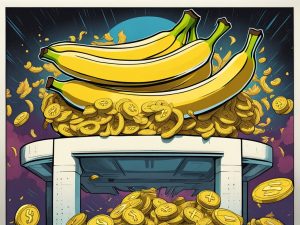Understanding the Legal Battle Over the $100 Million DeFi Exploit
Welcome to the courtroom drama where federal prosecutors and defense attorneys clash over the legality of a $100 million heist from the Solana DeFi platform Mango Markets. Dive into the legal nuances and complexities of this high-stakes case as both sides present their arguments before a Manhattan jury. Discover the key questions at the heart of the matter and the implications for future DeFi exploits in the U.S.
The Prosecution’s Case: U.S. Law and Commodity Fraud
The federal prosecutors assert that Avraham Eisenberg’s actions constitute criminal fraud under existing U.S. law. They argue that the exploit, involving Mango Markets’ assets, falls under commodities fraud and manipulation. The prosecution aims to establish the legal basis for charging Eisenberg with these offenses.
- The prosecutors claim that Eisenberg’s transactions on Mango Markets involved commodities, challenging the defense’s assertions.
- They seek to prove that the assets in question, such as USDC and MNGO, qualify as commodities under U.S. law.
The Defense’s Argument: Challenging Legal Definitions
Eisenberg’s attorney, Sanford Talkin, counters the prosecution’s claims by questioning the classification of the assets involved in the exploit. He challenges the notion that USDC and MNGO should be considered commodities, thus contesting the basis for the criminal charges against his client.
- Talkin argues that the assets in question, specifically USDC and MNGO, do not meet the legal criteria to be classified as commodities.
- He asserts that without establishing the commodities nature of the transactions, the charges of commodities fraud and manipulation do not apply.
The Prosecution’s Narrative: High-Tech Fraud in a Traditional Context
According to the U.S. government attorneys, Eisenberg’s exploit represents a modern adaptation of classic fraud schemes. They portray the heist as a sophisticated yet fraudulent scheme that leveraged high-tech tools to deceive and manipulate the market, drawing parallels to traditional scams.
- The prosecution frames Eisenberg’s actions as akin to a con artist selling a fake diamond ring and disappearing with the money.
- They highlight the deceptive nature of the exploit, emphasizing the financial harm inflicted on Mango Markets.
The Complex DeFi Exploit: Unraveling the Scheme
In October 2022, Eisenberg executed a series of trades on Mango Markets that led to the depletion of over $100 million from the platform. By leveraging perpetual futures and market manipulation tactics, he orchestrated a scheme that pushed Mango Markets to insolvency, sparking legal repercussions and regulatory actions.
- Eisenberg sold and bought large volumes of MNGO perpetual futures, artificially inflating the token’s price and borrowing against it.
- The exploit, prohibited under traditional financial regulations, exposed the vulnerabilities of DeFi platforms to sophisticated attacks.
The Aftermath: Legal Battles and Regulatory Scrutiny
Following the exploit, multiple legal actions were initiated against Eisenberg by regulatory authorities and affected parties. The SEC, Mango Labs, and the CFTC filed lawsuits against him, seeking accountability for the financial damages and market disruptions caused by the exploit.
- The legal battles highlight the challenges of enforcing existing laws in the rapidly evolving DeFi landscape.
- Regulators and industry players are grappling with the need for enhanced oversight and security measures to prevent similar exploits in the future.
Hot Take: Examining the Implications of the Case
Explore the broader implications of the legal battle over the $100 million DeFi exploit and its impact on the crypto industry. Gain insights into the evolving regulatory landscape, the complexities of prosecuting financial crimes in the digital realm, and the challenges of safeguarding decentralized finance platforms from malicious actors.





 By
By

 By
By

 By
By
 By
By